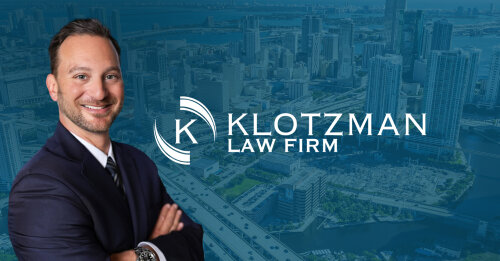Best Animal & Dog Injury Lawyers in New York City
Share your needs with us, get contacted by law firms.
Free. Takes 2 min.
List of the best lawyers in New York City, United States
1. About Animal & Dog Injury Law in New York City, United States
Animal and dog injury law in New York City covers injuries caused by dogs and other animals, including bite and attack cases. The core issues include fault in negligence cases, liability for medical costs, and damages for pain and suffering. In NYC, injuries can arise on streets, in buildings, or in public places like parks and transit hubs. An attorney can help you understand liability, insurance coverage, and possible lawsuits.
The law blends state level rules with local city practices. You may need to pursue a civil claim in court or work through insurance settlements. The process often involves medical documentation, witness accounts, and careful analysis of liability under New York law. Clear guidance from a solicitor or attorney helps you protect your rights and financial interests.
“Dog bite injuries are a common cause of emergency department visits in the United States.” Source: CDC.
For reliable, actionable guidance, rely on official sources and experienced legal counsel who understand New York City procedures and timelines. This guide is designed to help residents decide if legal help is right for them and what to expect in the process.
Key takeaway: NYC dog injury cases require careful evaluation of liability, medical costs, and insurance claims, often with city and state specific rules to consider.
2. Why You May Need a Lawyer
-
Subway or street incident with serious injuries. A dog bite on a crowded NYC platform or sidewalk can involve multiple liable parties, including the dog owner and potentially property owners. A lawyer helps determine all responsible parties and coordinates medical and insurance claims. This often affects the timing and amount of recovery.
-
Child injuries and protective care scenarios. If a child is bitten at a playground or by a neighbor's dog, you may face questions about supervision, owner responsibility, and guardianship. A solicitor can guide you through evidence gathering and settlement negotiations with insurers.
-
Building or landlord liability for unleashed dogs in common areas. If a dog attacks in a stairwell or hallway due to a building's failure to enforce leash or quarantine rules, you may pursue premises liability claims against the owner or management. Legal counsel helps assess damages and insurer dynamics.
-
Dog vaccination and licensing issues affecting liability. Some claims hinge on whether the dog was properly licensed or vaccinated. A lawyer can review compliance records and advise on potential impacts on liability and damages.
-
Designation of responsible parties in a dog park incident. Off leash or mismanaged dogs in designated spaces can raise questions about municipal or park authority responsibility. A lawyer can navigate city rules and relevant insurance coverage.
-
Insurance coverage and settlement disputes. Insurance adjusters may offer low initial settlements or disputes over medical bills. A lawyer helps document losses and negotiates a fair amount based on documented treatment and future needs.
3. Local Laws Overview
New York combines state statutes with city ordinances that affect dog ownership, vaccination, licensing, liability, and park rules. Understanding these rules helps determine who may be liable and what remedies are available after an animal related injury.
Statutory framework and practical implications include licensing and vaccination obligations, the general principles of liability for dog bites, and local rules on leash and animal management in public spaces.
Key sources to review include state level dog licensing and liability statutes, and city level rules on animal control and public spaces. The following references provide official context for these topics.
“In New York, the statute of limitations for most personal injury claims, including dog bites, is three years.” Source: CPLR.
Important laws and concepts to note:
New York State Agricultural and Markets Law - Licensing and Vaccination
This law governs dog licensing and rabies vaccination requirements across New York State. It sets expectations for how dogs must be registered and vaccinated, which can influence liability and enforcement in injury cases. Local jurisdictions may implement additional rules beyond state requirements.
New York Civil Practice Law and Rules - Personal Injury Timelines
The Civil Practice Law and Rules (CPLR) establish the general timeline for personal injury claims, including dog bite injuries. A three year period is common for adults, with different provisions that may apply to minors and certain cases. Consult a solicitor to determine the exact deadline for your situation.
New York City Administrative Code and Public Space Rules - Leash and Park Regulations
City ordinances address leash requirements, dog control, and leash free zones in parks and public areas. These rules influence liability in incidents occurring in NYC parks, sidewalks, or common areas of buildings. City agencies such as the Department of Health and Mental Hygiene and Parks and Recreation oversee enforcement and compliance.
Recent changes and trends in dog injury law in New York City have focused on consistent enforcement of licensing, vaccination, and leash rules, alongside continued use of civil claims for injuries. For the latest text, review the official statutes and city pages referenced below.
Sources for this section include official state and city resources and a reputable legal organization. They provide the authoritative framework for understanding responsibility and timelines in New York City dog injury cases.
New York State Agricultural and Markets Law - Licensing and vaccination
New York Civil Practice Law and Rules (CPLR) - Personal injury timelines
New York City Department of Health and Mental Hygiene - Rabies vaccination and public health guidance
New York City Parks - Leash and dog park rules
Note: For the most precise statutory text and current enforcement practices, consult the cited government sources and a licensed solicitor in New York City.
4. Frequently Asked Questions
What is the difference between a dog bite claim and a general personal injury claim?
A dog bite claim is a type of personal injury claim focusing on injuries caused by a dog. It may involve unique liability issues and dog owner responsibilities. A lawyer can help determine whether liability rests on negligence, knowledge of risk, or other theories under New York law.
How do I start a dog bite case in New York City?
Begin by seeking medical care and documenting injuries. Then contact a solicitor who handles animal injury cases to gather evidence, identify liable parties, and assess insurance coverage. Early steps help preserve evidence and strengthen your claim.
What is the typical timeline for a dog bite lawsuit in NYC?
Most cases begin with a demand or settlement negotiation within a few months. If a suit is filed, civil litigation can take 12 to 24 months or longer depending on complexity and court scheduling. Early settlement is common in many NYC cases.
How much can I recover for a dog bite injury in New York?
Damages typically include medical expenses, lost wages, and pain and suffering. The amount varies with injury severity, treatment length, and impact on daily life. A lawyer can help quantify past and future losses.
Do I need to hire a dog bite attorney in NYC?
Hiring a solicitor who specializes in animal injury helps navigate complex liability issues and insurance disputes. An experienced attorney can assess fault, gather medical and evidentiary documents, and negotiate favorable settlements.
What is the statute of limitations for dog bite cases in New York?
In New York, most personal injury claims, including dog bites, have a three year statute of limitations. Minors may have different rules, so consult a lawyer to confirm deadlines for your case.
Do I have to prove the dog owner was negligent?
Not always. New York uses various theories, including negligence and known dangerous propensity, to determine liability. A lawyer helps analyze the facts to determine the best claim strategy.
Is New York a one bite rule state for dog bites?
New York does not employ a universal one bite rule. Liability depends on evidence of negligence, owner control, and known dangerous propensities. A lawyer explains the applicable standard for your case.
What documents should I collect after a dog bite incident?
Collect medical records, police or incident reports, photos of injuries, witness statements, dog owner's details, vaccination and licensing records, and any insurance information. These documents support liability and damages.
What if the incident happened in a shared building or elevator?
Claims may involve premises liability against the building owner or management for failing to control a dangerous dog. A solicitor helps determine responsible parties and the right legal strategy.
Can I sue the city or government entity for an animal injury?
Suits against a city or government entity have strict rules and notice requirements. You need to follow specific procedures and deadlines. A lawyer can guide you through the proper steps.
Should I accept the insurer's initial settlement offer?
Initial offers are often low and may not cover all medical costs and future needs. A lawyer can evaluate the offer, negotiate, and advise on whether to settle or proceed to litigation.
Do I need to pay out of pocket for a dog bite lawyer?
Many animal injury lawyers work on a contingency basis, meaning you pay nothing upfront and only after recovery. Confirm fee arrangements during your initial consultation.
5. Additional Resources
- Centers for Disease Control and Prevention (CDC) - Dog bite prevention and statistics https://www.cdc.gov/features/dog-bite-prevention/index.html
- New York City Department of Health and Mental Hygiene (DOHMH) Rabies vaccination requirements and public health guidance for pets https://www1.nyc.gov/site/doh/index.page
- New York State Agricultural and Markets Law (AMK) - Licensing and vaccination https://www.nysenate.gov/legislation/laws/AMK
6. Next Steps
- Gather incident details Compile dates, locations, witness contacts, and any available video or photos within 7 days of the incident.
- Seek medical care and document injuries Obtain all medical records and bills. This documentation supports damages later.
- Identify potential defendants Determine whether the dog owner, building management, or a city entity may be liable. Collect ownership and licensing information if available.
- Consult a specialized attorney Schedule a consultation with a solicitor experienced in animal injury cases in NYC. Prepare a summary of facts for the meeting.
- Assess insurance coverage Notify applicable homeowners, renters, or liability insurers. Review policy limits and condition for claims.
- Decide on a strategy With your lawyer, choose between settlement negotiations or filing a civil complaint. Discuss timeframes and potential outcomes.
- Monitor and adjust for ongoing needs If injuries require long-term care or rehabilitation, update your legal strategy as medical plans evolve. Expect ongoing documentation.
Lawzana helps you find the best lawyers and law firms in New York City through a curated and pre-screened list of qualified legal professionals. Our platform offers rankings and detailed profiles of attorneys and law firms, allowing you to compare based on practice areas, including Animal & Dog Injury, experience, and client feedback.
Each profile includes a description of the firm's areas of practice, client reviews, team members and partners, year of establishment, spoken languages, office locations, contact information, social media presence, and any published articles or resources. Most firms on our platform speak English and are experienced in both local and international legal matters.
Get a quote from top-rated law firms in New York City, United States — quickly, securely, and without unnecessary hassle.
Disclaimer:
The information provided on this page is for general informational purposes only and does not constitute legal advice. While we strive to ensure the accuracy and relevance of the content, legal information may change over time, and interpretations of the law can vary. You should always consult with a qualified legal professional for advice specific to your situation.
We disclaim all liability for actions taken or not taken based on the content of this page. If you believe any information is incorrect or outdated, please contact us, and we will review and update it where appropriate.
















